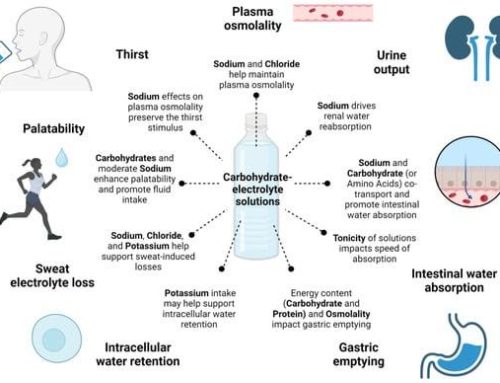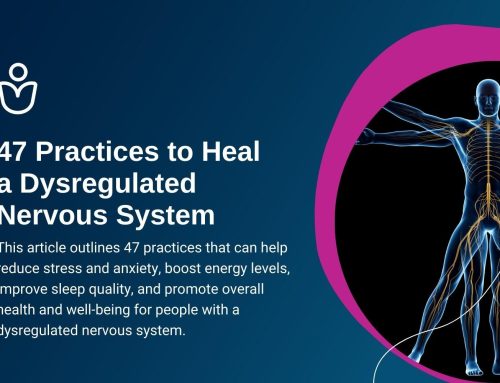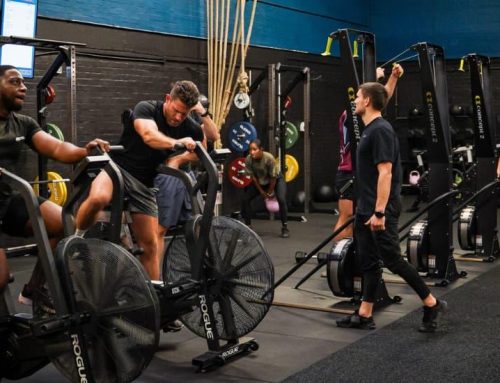Sleep and Athletic Performance: The Vital Connection
Ah, sleep. The blissful state when you get to dream about flying unicorns, or the day you finally licked your elbow, or whatever floats your boat. For athletes, however, sleep is more than just a time to catch up on their wildest fantasies. It’s the secret weapon that can make or break their performance in sports. Yes, you heard that right. Sleeping can turn you from zero to hero, or from hero to zero, depending on how seriously you take it. So, grab a blanket, turn off your phone, and get ready to learn about the vital connection between sleep and athletic performance. And please, don’t snore too loud.

Contents
- 1 The critical role of quality sleep in athletic performance
- 2 The Importance of Good Sleep Quality for Peak Physical and Mental Performance
- 3 Long-term effects of chronic sleep deprivation on athletic results
- 4 Strategies for optimizing sleep for athletes to improve performance
- 5 The importance of a sleep routine and sleep hygiene in athletic performance
- 6 Don’t Snooze on Sleep!
The critical role of quality sleep in athletic performance
Sleep is a powerful weapon every athlete must have in their arsenal. It’s like having an invisible energy bar that you can charge up by simply closing your eyes and snoring away. Think of it as the legal steroid that everyone can have access to! So, let’s dive into why quality sleep is critical for any athlete who wishes to reach their full potential in their chosen sport.
Firstly, quality sleep helps with muscle recovery. During sleep, the body starts repairing and rebuilding muscle tissue that might have been damaged during intense workouts. So, if you’re not getting enough quality sleep, your muscles won’t have enough time to recover, and your performance may suffer. Unleash the magic of sleep and let your muscles recharge their batteries.
Secondly, sleep enhances your ability to focus. Your brain needs adequate rest to function correctly, and sleep deprivation can lead to lack of focus, slower reaction times, and cloudy decision-making skills. So, next time someone tells you that you’re too lazy for sleeping in, tell them you’re just improving your mental sharpness for your days’ game.
Lastly, good quality sleep can help regulate hormones. It can boost your metabolism, balance out your cortisol levels (the stress hormone), and help produce more growth hormones – all of which are essential for athletic performance. Lack of sleep disrupts your hormones, leading to fatigue and poor performance. So, by getting a good night’s sleep, you’re practically buying yourself a box of hormone-rich cereal!
In conclusion, quality sleep is no joke when it comes to athletic performance. It’s a crucial aspect that every athlete must prioritize if they wish to perform at their best. So, the next time you need an excuse to sleep in or hit the snooze button, remind yourself that you’re doing it for the team – the dream team!

The Importance of Good Sleep Quality for Peak Physical and Mental Performance
Have you ever woken up feeling like a zombie on a Monday morning, unable to lift your arms or keep your eyes open? You probably had a terrible night’s sleep, my friend. Poor sleep quality has a significant impact on both physical and mental performance, and it’s not a pretty picture.
Physically speaking, lack of sleep makes you feel like a slug on a hot day. Your reflexes slow down, your hand-eye coordination goes haywire, and your muscles become weak and unresponsive. That’s why you look like a buffoon when you try to catch a frisbee on the beach after six hours of restless sleep. Trust me; I’ve been there.
Mentally, sleep plays a key role in memory consolidation and cognitive processing. When you don’t get enough shut-eye, your brain starts to misfire, and you feel like a walking zombie with attention deficits, forgetfulness, and a general lack of focus. You can’t concentrate on anything for more than five minutes, and you’re so irritable that your colleagues start avoiding you like the plague.
- Tip #1: Invest in a comfortable mattress and pillows to improve your sleep quality.
- Tip #2: Establish a regular sleep schedule and stick to it even on weekends.
- Tip #3: Avoid caffeine, alcohol, and screens before bedtime to ensure quality sleep.
In conclusion, if you want to perform at your best, you need to prioritize good sleep quality. Otherwise, you’ll be stumbling through life like a drunkard with no sense of direction or purpose. Don’t be that guy. Get some quality shut-eye tonight and wake up ready to conquer the world!
Long-term effects of chronic sleep deprivation on athletic results
The relationship between sleep deprivation and performance isn’t something new. We’ve known since we were kids that pulling an all-nighter before an exam results in a low grade. But when it comes to athletes and sports, a good night’s sleep can make all the difference in their results. Here are some long-term effects of chronic sleep deprivation on athletic performance:
- Reduced endurance: Sleep-deprived athletes tend to have lower endurance levels than their well-rested counterparts. This is because a good night’s sleep helps the body to recover, recharge and rebuild.
- Lack of focus: Lack of sleep can lead to a lack of focus, which can be detrimental to an athlete’s performance. An athlete may lose their ability to concentrate, which can result in mistakes or missed opportunities.
- Slow recovery: Athletes who don’t get enough sleep will have a slower recovery time after practice or a competition. It means that their muscles will not repair themselves as quickly, and they may experience more injuries.
So, all you athletes out there, it’s time to prioritize your sleep routine. You wouldn’t dream of showing up to a competition without having practiced first, so make sure that you have enough sleep under your belt before game day. It may just be the edge you need to make your performance soar!
Strategies for optimizing sleep for athletes to improve performance
As an athlete, you might think that sleeping is just an activity to rest your tired body, but it’s so much more than that. Sleep helps your body recover, builds muscle, and boosts your immune system. To help you get the most out of your sleep time, here are some strategies that you can try:
1. Set a consistent bedtime and wake-up time, even on the weekends. This will help regulate your body’s internal clock and make falling asleep easier. Plus, you won’t feel like you’re living in two different time zones when you’re trying to catch up on sleep on the weekends.
2. Create a relaxing bedtime routine. This should include light stretching, reading, or taking a warm bath. Avoid using electronic devices before bed, as the blue light emitted can interfere with your body’s natural sleep-wake cycle.
3. Invest in a good-quality mattress and pillows. Not only will this help you sleep more comfortably, but it can also prevent injuries sustained from sleeping in a poor position. Remember, it’s not just about the quantity of sleep you get, but the quality as well. So, make it a priority to invest in your sleep comfort.
Remember, sleeping is one of the most important things you can do for your athletic performance. So, make sure to factor in ample sleep time into your training schedule, and don’t be afraid to prioritize it over a night out with friends or an early morning training session. Happy snoozing!
The importance of a sleep routine and sleep hygiene in athletic performance
cannot be overstated. It might seem like getting enough sleep is just a matter of hitting the hay and waking up whenever the sun rises, but for athletes, a good night’s sleep can mean the difference between a gold medal and a participation ribbon.
First things first: if you’re an athlete, you need a sleep schedule. Not just any schedule, mind you, but one that is timed to your body’s natural rhythms. That means going to bed and waking up at roughly the same time every day, even on weekends. Think of your sleep schedule as a secret weapon in your arsenal of performance-enhancing strategies. And no, we don’t mean the kind of arsenal that Lance Armstrong was packing.
Next up is sleep hygiene. No, that doesn’t mean washing your sheets or changing your pillowcases regularly (although, that’s important too). It means creating an environment that promotes restorative sleep. This can include things like investing in a comfortable, supportive mattress (not one that feels like you’re sleeping on a slab of concrete), keeping your bedroom cool and quiet, and avoiding screen time for at least an hour before bed. Trust us, your Instagram feed will still be there in the morning.
- So, what are the takeaways here?
- Create a sleep schedule that’s timed to your body’s natural rhythms.
- Invest in a comfortable mattress and create a cool, quiet sleeping environment.
- Avoid screen time before bed.
- And, if all else fails, try counting sheep. Just don’t get carried away and start imagining yourself as a professional sheep jumper—remember, you’re trying to get some shut-eye!
In all seriousness, getting enough sleep is one of the most effective and underrated ways to improve athletic performance. So go ahead, kick off your shoes, climb into your cozy bed, and wake up ready to crush your next workout. Your body (and your medals) will thank you.
Don’t Snooze on Sleep!
Well, looks like you’ve come to the end of the article! And now that you’re enlightened about how crucial sleep is for athletic prowess, don’t hit snooze on your own bedtime routine. Unless you’re a sloth, in which case, maybe you need to be sleeping more than just eight hours a day to be faster. But for the rest of us mere mortals, we hope this article has helped you realize that incorporating quality sleep into your training and competition regime could be your secret weapon for athletic success. So, let’s all catch some Z’s and hit those personal bests, shall we? Goodnight!








Leave A Comment